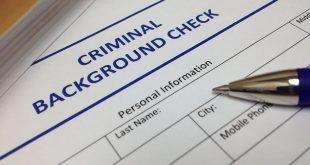 If you own a home that’s currently unoccupied (perhaps you’re renovating or in between tenants), your standard home insurance policy may be invalidated, leaving you financially unprotected should anything happen.
If you own a home that’s currently unoccupied (perhaps you’re renovating or in between tenants), your standard home insurance policy may be invalidated, leaving you financially unprotected should anything happen.
Most insurers will consider a property to be “unoccupied” if it is vacant for a minimum of 30 consecutive days. Many of those whom are living elsewhere whilst their home is undergoing major renovations aren’t aware of this, and are relying on their standard home insurance for cover. Obviously there is higher risk of property damage associated with properties being refurbished, due to the extensive work being undertaken, and especially when the property is left uninhabited for longer periods of time there may not be someone present immediately if anything were to happen. Therefore many home insurance policies will not cover properties which are unoccupied during renovation, leaving those who are reliant on this type of standard insurance policy financially vulnerable when attempting to claim for any damage. Even home insurance policies that have been negotiated to include some form of cover may not be adequate in comparison to an insurance policy specifically designed for unoccupied homes, and you may not receive the claim amount in full.
Landlords who expect to be searching for a new tenant for a while can also be assured that unoccupied home insurance protects both the building and its contents during this period in between tenants. If a lease agreement is in place but your tenant will not be moving in for a few weeks, you’ll be fine with just purchasing landlord insurance. However, if you suspect that the property will be empty for quite a while due to long periods of unoccupancy historically or difficulty in finding tenants and letting agent processing then this is when unoccupied property insurance is recommended.
Unoccupied properties are also at a higher risk of intrusion and/or vandalism, in addition to any fire damage or flood damage that may occur without an occupant present to react immediately to the risks.
There are a number of situations in which you may find yourself with an vacant property.
- Your property is undergoing works.
- You have purchased a new home but have yet to move in, and are still living in your first/current home.
- Your property is on the market, or waiting to be put on the market, and is currently uninhabited.
- You are currently seeking a new tenant for your let property.
Whatever your situation, always make sure to speak with your insurer if you’re in doubt. You may find out that you’re not as protected as you thought you were…
